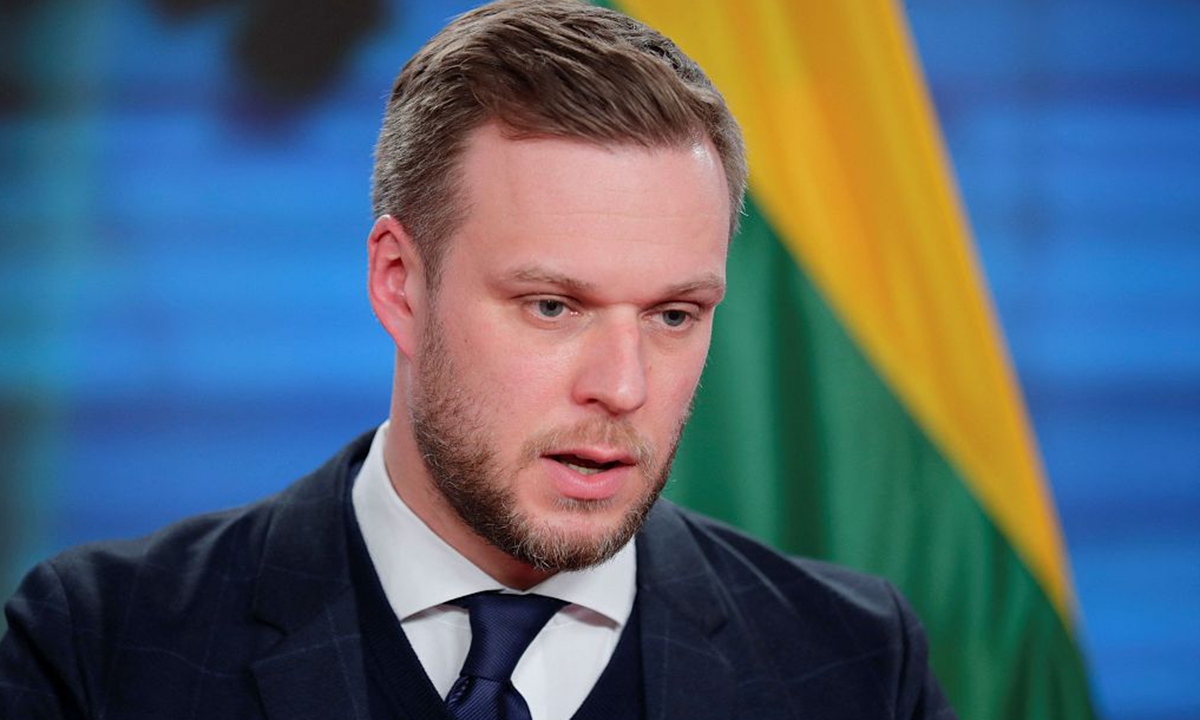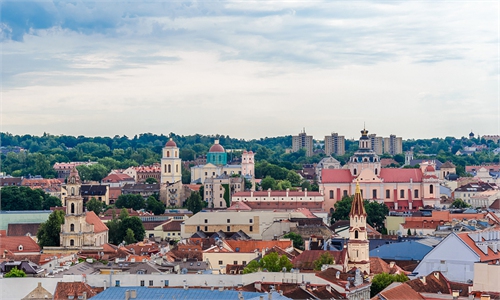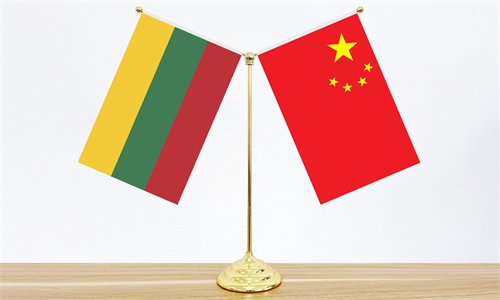Lithuanian FM attempts to dump unsalable products in new markets with Singapore, Australia trip

Lithuanian Foreign Minister Gabrielius Landsbergis file photo:VCG
While hyping the "coercion" accusation against China, Lithuania is anxiously seeking political support from countries around China and trying to draw more countries into its anti-China clique during its Foreign Minister's visit to Singapore and Australia. However, analysts said its plans to dump unsalable products to other countries are doomed as China's market and industrial chain influence are irreplaceable and its attempts to continue provocation against China's sovereignty are also meeting with increasing opposition.
Chinese Foreign Ministry spokesperson Zhao Lijian said on Tuesday that China always abides by the rules and regulations of the World Trade Organization and the so-called "coercion" of China against Lithuania is purely made out of thin air.
China urges Lithuania to face up to the objective facts, mend its ways, and come back to the right track of adhering to the one-China principle. It should stop confounding right with wrong and maliciously hyping things up, let alone trying to rope other countries in to gang up on China, Zhao said.
Lithuania Foreign Minister Gabrielius Landsbergis started visiting Singapore and Australia. On Tuesday, he arrived in Melbourne to meet with Australian business and scientific organizations. He will meet with Australia's Foreign Minister Marise Payne, the Minister for Defense Peter Dutton, and members of the Australian Senate.
Before his visit to Australia, he visited Singapore to "deepen the geopolitical dialogue and to develop bilateral relations" as Lithuania sees Singapore as a "gateway" to other Southeast Asian markets, The Baltic Times reported.
On the eve of his visits, The Australian Financial Review reported that "at the top of the agenda was China's coercion and trade sanctions" in an interview with Landsbergis.
Observers noted that due to its provocations against China's bottom line on the Taiwan question, bilateral trade relations have suffered. Lithuania is now seeking new markets to dump its unsalable goods, but neither Singapore nor Australia has the potential to become an economic pivot to allow Lithuania to continue its anti-China policies.
Lithuania's efforts to seek aid to bail out its economy are unlikely to come to fruition in the foreseeable future, Cui Hongjian, director of the Department of European Studies at the China Institute of International Studies, told the Global Times on Tuesday.
Landsbergis' visit to Singapore and Australia is a gesture of politics and diplomacy, with the intention of instituting a united front against alleged coercion from China, Cui remarked.
Lithuania is trying to rope in what it sees as fellow "victims" of the so-called coercion, Cui said, adding that Australia, in particular, takes the lead in hyping the united front under so-called coercion.
Considering the size of Singapore's economy, Landsbergis' visit to Singapore is more about seeking political support. Analysts also noted that Lithuania is like a drowning man who wants to clutch at a straw - as neither Singapore nor Australia will help solve its current problems on exports. And unlike Australia, which has gone astray further in following the US to contain China, Singapore has insisted on pragmatic policies and maintained good relations with China. It means Singapore will not be involved in the current disputes between China and Lithuania.
The pursuit of the so-called substitution to address supply chain woes confronting Lithuania is not a possible mission in the short term, Cui said, noting that Lithuanian government's willingness to force supply chain reshuffles is less likely to appeal to the business community.
Growing opposition among Lithuanian politicians is tearing apart its government over the country's wrong move of allowing the Taiwan authorities to open a "representative office" under the name of "Taiwan" in Vilnius, with the opposition party leader urging its foreign minister to step down. In January, Reuters quoted sources as saying Landsbergis proposed to the country's president to modify the Chinese version of the representation name to refer to the "Taiwan people," to defuse its row with Beijing.
What haunts Lithuania most is that its role in the EU supply chains might be at risk of its tensions with China over the Taiwan question, Gao Lingyun, an expert at the Chinese Academy of Social Sciences in Beijing, told the Global Times on Tuesday.
The EU, China's second-largest trading partner after the ASEAN, is also Lithuania's top trading partner.
The trade closeness between China and the EU ought to awaken Lithuania to what could be lethal consequences in case of its relentless anti-China actions, Gao said.
Lithuania's auto part sector has over the past few months been in the limelight amid concerns that local automotive supply chains, a component of EU automaking capacities, might take a hit.
German car parts giant Continental is being asked to halt using components made in Lithuania, Reuters reported in December.





